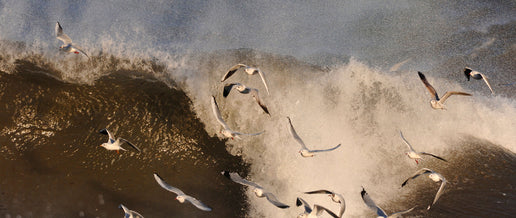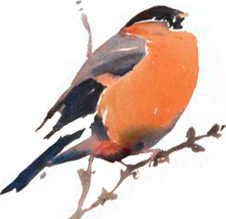This year’s Club conference was attended by over 150 birdwatchers, including over 30 budding young naturalists, who benefited from the Club’s subsidised young person’s attendance fee. It was also our first foray into the hybrid event world and we had around 40 virtual attendees join us via a Zoom over the weekend.
Please note: this event has now passed. Details below are provided for reference only.
This year marks the 20th anniversary of the Scottish Raptor Monitoring Scheme (SRMS) and so we decided to make the theme of our 2022 Club conference all about birds of prey.
Raptors are arguably some of the most charismatic and interesting animals on the planet; some can exploit human landscapes fully, bringing wild nature to the hearts of our cities, while others are rare, shy or elusive, so they bring us to wild nature as we seek them in their special places. Some are universally loved, others are persecuted. From Kestrels to Golden Eagles, Merlins to Goshawks, there is always a good story to tell, from their hunting ability to the challenges and triumphs of their conservation. Any day is made special by a raptor encounter, so why not pack a whole lot of special into a weekend! Our speakers have that special insight borne of long and careful study throughout Scotland and further afield.
We will be returning to the Atholl Palace Hotel in Pitlochry, an ideal location for a relaxing weekend as well as a base for late autumn birding at the edge of the Highlands. However, for those unable to join us in person, we are offering an online alternative (see Virtual Delegates below).
The SOC Annual General Meeting is required to be an in-person event, in line with the Club’s Constitution. However, members may attend virtually, in a non-voting capacity, via Zoom.
The SRMS milestone will be marked by a special celebratory event on the Friday afternoon (2-5pm), comprising a series of short talks followed by a drinks reception. This is a private event organized by the Scottish Raptor Monitoring Coordinator and is aimed primarily at those working in the field of raptor research. However, anyone with an interest in raptors and the work of the SRMS is welcome to attend. Places are limited and advance booking is essential. For more details and to reserve a place, click here.
We're delighted to announce that this year's conference is kindly supported by Swarovski Optik. We are also grateful to MacArthur Green for sponsoring the Young Birders Networking Session.
Programme:
[widgetkit id="147" name="Annual Conference Accordion 2022"]
Book your place
Now closed.
Charges
RESIDENT DELEGATES
Rates are per person and include Friday night lecture, Friday evening buffet meal, two nights' bed and breakfast, programmed refreshments, lunch on Saturday and Sunday, and conference dinner/ceilidh on Saturday.
- £265 (£255 SOC members/£50 young birders rate )*
*Based on shared occupancy of a double/twin room. Single occupancy supplement is £84 (£42/night).
DAY DELEGATES
Day Delegate rates for the Saturday and/or Sunday are per person and include tea and coffee on arrival and during the conference programme but do not include meals or the Friday evening talk/quiz, which must be booked separately.
- Both days: £55 (£45 SOC members/£20 young birders)
- One day: £30 (£25 SOC members/£12 young birders)
- Friday evening talk & Quiz: £12 (£10 SOC members/£5 young birders)
VIRTUAL DELEGATES
Virtual delegates will receive joining instructions for the live broadcast of the talks on Zoom. The link will be valid for the entire weekend programme. Rates are per household.
- SOC members: £20
- Non-members: £30
AGM-ONLY ATTENDEES
Members planning to attend the AGM only do not need to book a Conference place but are asked to let the office know.
[widgetkit id="148" name="Annual Conference 2022 - speaker summaries"]
Exhibitors
- BTO Scotland: A wide selection of literature covering BTO’s various monitoring schemes, with Ben Darvill and Steve Willis on hand to explain how you can get involved, including a demonstration of the BirdTrack website and the all-new and massively improved smartphone app
- Cluggy’s Books: SOC Honorary Librarian, Dave Clugston, offers a selection of quality second-hand natural history books
- SOC: The Club will have its usual selection of SOC merchandise, new and second-hand books, bird reports, and cards & gifts
- Viking Optical: A range of binoculars, telescopes and accessories
If you are interested in having a stand at the conference, please email Wendy Hicks.
Thank you to this year’s sponsor, Swarovski Optik, and the following businesses and groups for their generous contributions towards subsidising conference places for young birders

[widgetkit id="152" name="AC branch logos"]





